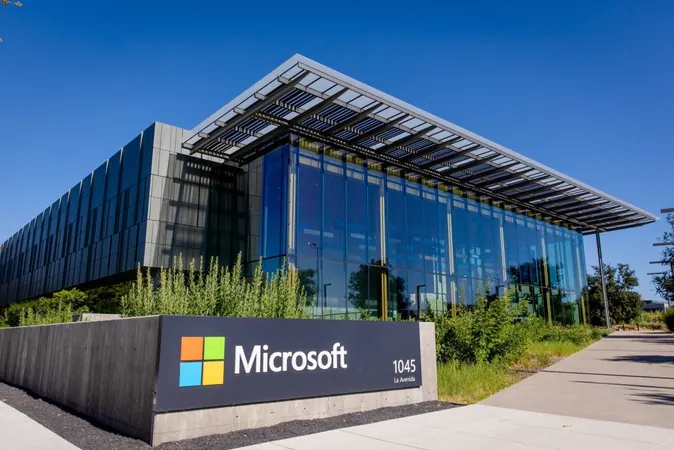
AI Revolutionizes Coding: Microsoft CEO Reveals Shocking Stats
2025-04-30
Author: Wei
AI Takes the Coding World by Storm
In a groundbreaking revelation, Microsoft CEO Satya Nadella announced that artificial intelligence is now responsible for generating up to 30% of the software giant's code—a number that's expected to rise. This eye-opening statement was made during a live chat with Meta's CEO Mark Zuckerberg at LlamaCon, an AI developer event in Menlo Park, California.
Meta's Bold Vision for AI Development
Zuckerberg did not hold back either, revealing ambitious plans for Meta to deploy AI in a way that could potentially manage half of the company’s software development within the next year. This news is just one part of a larger industry trend.
The AI Coding Arms Race
Tech behemoths like Google, Shopify, and Duolingo are now harnessing the power of AI to streamline and enhance software development processes, reflecting a seismic shift in how coding is approached.
A Historical Perspective on Programming Productivity
The rise of AI in coding is not a random occurrence; it's part of a long-standing evolution in programming productivity. Since the 1950s and 60s, when developers were writing tedious assembly code, the field has transformed significantly. The introduction of higher-level languages like C in the 1970s allowed for more concise expression of algorithms, greatly boosting productivity.
The subsequent decades introduced open-source libraries and frameworks, enabling developers to reuse code and achieve productivity increases of up to 60%. Now, advanced AI coding assistants like GitHub Copilot and Google’s AlphaCode are taking this trend to a new level, allowing programmers to articulate their intent in natural language while the AI generates functional code.
Empowering Developers, Not Replacing Them
This evolution suggests that AI tools won't replace programmers but will instead empower them to tackle more complex challenges as automation takes over the grunt work of coding implementation.
The Competitive Frontier of AI Coding Tools
The race is on among big tech companies to dominate the AI-assisted programming space. Microsoft is leading the pack not just with internal AI integration, but also through external products like GitHub Copilot—boasting over 1.3 million paying subscribers in 2023.
Meanwhile, Google recently disclosed that around 25% of its code is AI-generated, and Meta's goal for AI to handle half of future Llama model development emphasizes the focus on innovation in this arena.
Investment and Innovation on the Rise
The increasing interest is not limited to established companies; specialized AI coding startups have raised over $2 billion in venture funding since 2021. This reflects the growing recognition of the lucrative market potential in AI tools for programming.
This competitive landscape echoes previous trends in developer tooling, where early movers gain significant advantages through network effects and ecosystem loyalty.
What's Next?
As we stand on the brink of this exciting new chapter in technology, the implications of AI in coding are poised to reshape not just how software is built, but the very frameworks of collaboration and creativity in the tech industry. Expect more groundbreaking developments to unfold in the coming months!


 Brasil (PT)
Brasil (PT)
 Canada (EN)
Canada (EN)
 Chile (ES)
Chile (ES)
 Česko (CS)
Česko (CS)
 대한민국 (KO)
대한민국 (KO)
 España (ES)
España (ES)
 France (FR)
France (FR)
 Hong Kong (EN)
Hong Kong (EN)
 Italia (IT)
Italia (IT)
 日本 (JA)
日本 (JA)
 Magyarország (HU)
Magyarország (HU)
 Norge (NO)
Norge (NO)
 Polska (PL)
Polska (PL)
 Schweiz (DE)
Schweiz (DE)
 Singapore (EN)
Singapore (EN)
 Sverige (SV)
Sverige (SV)
 Suomi (FI)
Suomi (FI)
 Türkiye (TR)
Türkiye (TR)
 الإمارات العربية المتحدة (AR)
الإمارات العربية المتحدة (AR)